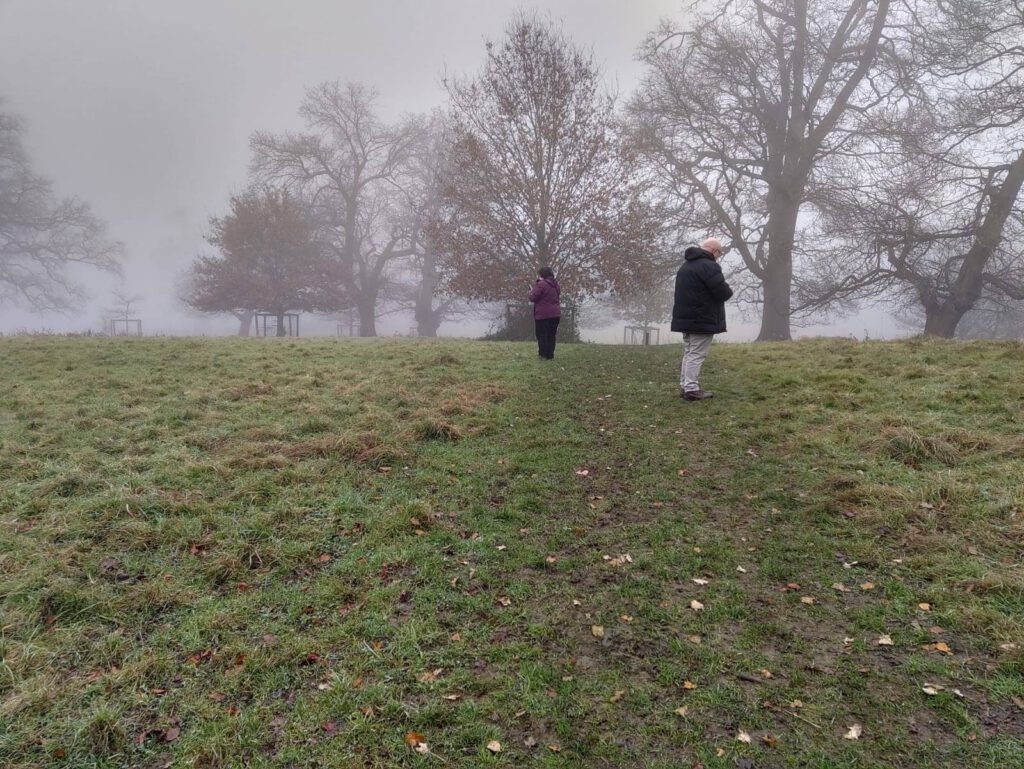Is walking the right step in your journey through a healthy life?

We find the advice everywhere. Exercise is good for you, and continued exercise will help you enjoy a healthier old age. In the UK, that means most of us are recommended to do at least 150 minutes of moderate-intensity activity each week, whether that’s brisk walking, dancing, swimming, water aerobics or moderate cycling.
How much exercise and how vigorous does depend on numerous factors, including age, mobility and general health.
How fast?
For older people, Age UK’s advice is that a daily walk, even if it’s a 15-minute stroll to the shops is worth doing for the sake of your health. And the charity offers some time-honoured tips, such as using stairs, parking at the far end of a car park, and taking a longer walk at weekends.
But is a stroll enough really? A while back we met several older couples marching at a pace around our local National Trust property estate. It turned out it was the day a newspaper had reported that there is significantly more benefit to be gained if you walk quickly.
And indeed, according to the NHS, a brisk walk is better than a stroll. For brisk, we’re talking round about 3 miles an hour, although that’s going to vary according to age, build, health and other factors. Theoretically you should be able to talk but not sing the words to a song.
To help you check your speed, you can use the free Active 10 app. We’ve not tried it, but it’s suggested by the NHS and you can download it here. Download the Active 10 app from the App Store Download the Active 10 app from Google Play
How far?
There is that other guide that’s regularly quoted – take 10,000 steps a day to maintain your health. It seems that the number originated in a Japanese marketing campaign, but has now been accepted as a good rule of thumb. However, taking that number of steps a day takes time, and we can’t all make that time available every day. The good news is that further research suggests that 7,000 steps a day is just as good, and more attainable. Moreover, this research says intensity doesn’t matter too much.
Even that is a bit ambitious for me. I aim for 6,000 steps a day on my Fitbit, and on the days that I’m sitting here typing for hours, I don’t make it. On the other hand, a half-day out somewhere interesting can be enough to go well beyond the daily target. And I’m always surprise at how many extra steps I can rack up while gardening, or even wandering down to Lidl in the village for emergency supplies.
Can walking make you younger?
Now there’s a new story hitting the headlines, saying that walking can make you younger. But looking behind the headlines that’s not quite the case, says the British Heart Foundation. This research can’t tell you that increasing your walking speed will lower your biological age. It does suggest, however, that those who have had a faster walking pace across their lifetime may have the physical characteristic of longer ‘telomeres’, and that this could be an indicator of better overall health
Is it all worth it?
The health benefits of exercise are regularly cited as helping people to lose weight, while lowering the risk of cardiovascular disease, diabetes and some cancers. It also protects against dementia by boosting blood flow to the brain.
It does seem that exercise extends life. A recent study of nearly 5,000 adults aged 40-85 found that 10, 20, or 30 minutes extra exercise a day reduced annual mortality rates by 7%, 13% and 17% respectively.
Where next?
If you have a health condition, check with your GP before starting a new exercise regime.
Joining a walking group may well work for some.
Try the NHS apps of Strength and Flexibility and Couch to 5K (though that’s more about running)
Also worth reading about exercise and age:
- Keeping your body younger than your years sensibly
- Why rowing works for seniors
- Why and how to weight train in later life

